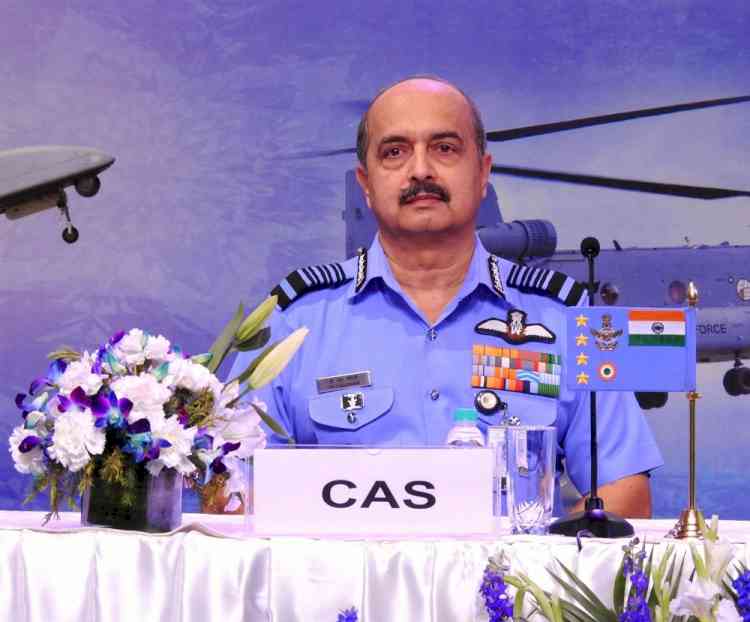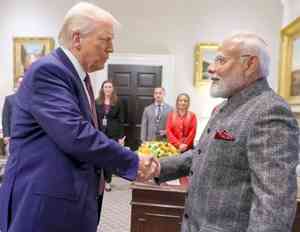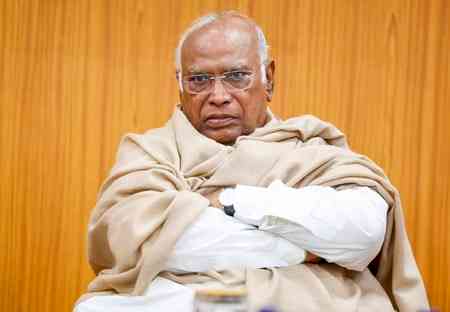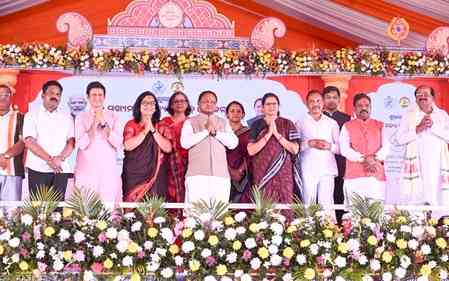Social media influences society, affects info processing: IAF chief
Automated resolving problems and "social media influenced society" have affected information processing in not only the aviation sector but across the world itself, said Indian Air Force Chief Air Chief Marshal Vivek Ram Chaudhari on Tuesday while talking about Aerospace Safety.

New Delhi, March 15 (IANS) Automated resolving problems and "social media influenced society" have affected information processing in not only the aviation sector but across the world itself, said Indian Air Force Chief Air Chief Marshal Vivek Ram Chaudhari on Tuesday while talking about Aerospace Safety.
Addressing the International Aerospace Safety Conference, Air Chief Marshal Chaudhari said, in modern generation the art and science of analysis and application of mind to solve complex problems is increasingly being automated and that cognitive reasoning and approach to problem solving has therefore taken a back seat.
He said, "Modern society is seeing rapid changes in the way we do everything, be it our personal finances or seeking avenues for entertainment. The modern generation seeks answers from Google rather than good old research in a library. While these changes are good, they also have their shortfalls."
He stressed that the world, India and consequently the aviation community has rapidly transformed from an 'industrial age society' to the 'information age society' and further to a 'social media influenced society'.
Long hours spent on social media platforms not only affect sleep but also affect information processing. "We must therefore adapt and constantly review our training content and methods to address these new age challenges," he said.
He also pointed out that introduction of automation in the past has taught us that technology can be a double-edged weapon. "It reduces the human work load on one hand but it can potentially introduce more errors. The recent accidents of the Boeing 737 Max have amply proved this point. Hence, with automation and newer technology, the role of human beings in air operations may reduce in certain areas but also increase the importance of hitherto unknown human factors," he added.
Talking about Aerospace Safety, he said that operational capability and aerospace safety are complementary and symbiotic with each other.
"In the pursuit of operational goals, preservation of our resources remains an important objective. No operational goals can be achieved if aircrew and aircraft are lost. As risk is inherent in military aviation, it has to be assessed and managed effectively in order to accomplish laid down missions."
Adopting a safety culture in the aviation sector is the bedrock of any organization - be it military or civil. All Aerospace Safety programs are based on the continuous monitoring of the environment and its hazards, a thorough investigation of all aerospace occurrences and an even more thorough analysis of the results of these investigations, so that recurrences can be prevented. It is very important to address the root causes and not just the symptoms.
He stated that the Indian Air Force, since its inception in 1932, has adopted a flight safety centric approach in its working and the organisational culture is draped in these values and promotes a flight safety culture. Today, all facets of IAF's functioning have connections and connotations to the flight safety ambit.
"We have inducted modern generation aircraft and equipment with high-end technology. We also continue to operate older equipment. There is a need, therefore, to focus on seamlessly blending old and new technology whilst maintaining a good safety record. This is not easy and we all need to constantly give an impetus to safe and efficient operations," he stated.
The Indian Air Force chief pointed out that the main pillar of aeronautical safety is the formation and development of a correct safety culture and attitude, in air and on ground.
"This attitude is based on knowledge, discipline, operating procedures, compliance with aeronautical safety rules, encouraging honest and free reporting and keeping abreast with technological advancements," he stated.



 IANS
IANS 










